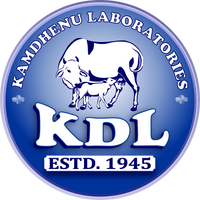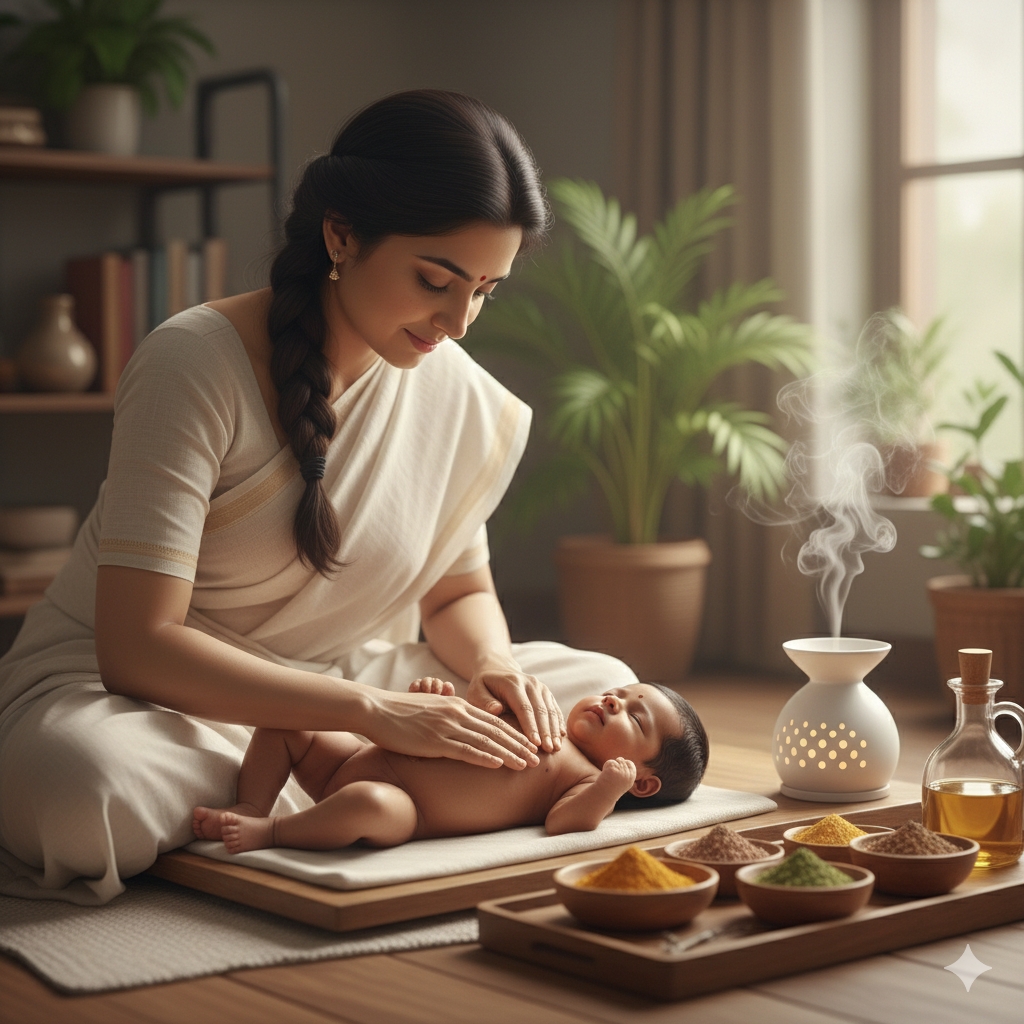The term "neonate" refers to newborn children. For the first twenty-eight days after birth, the kid is referred to as a neonate. Over the past, Ayurveda has learned that the first twenty-four hours are extremely important for a baby because the mortality rate is highest during these twenty-four hours. Centuries ago, great scholars of Ayurveda knew the fundamentals of pregnancy and childbirth. The strategies pursued by ayurveda for safeguarding a child's health is still highly helpful and is widely followed.
According to Ayurveda, the umbilical cord should be clamped and then sliced at a specific distance from both ends. Later, when it dries out, the small portion of the cord that was attached to the nabhi will come out. To prevent umbilical infection, proper hygiene should be maintained.
A medical professional will clean the newborn's nasal passages and mouth right after the delivery. The fetus continues to develop inside the uterus, which is filled with amniotic fluid. The newborn will likely have this fluid in his mouth and nasal tract when he is born, so it should also be cleaned out. Vernix caseosa, a slimy, white coating on the skin, needs to be cleaned thoroughly.
The newborn is sometimes unable to breathe. When a baby is not crying, it may mean that they are not breathing normally. According to Ayurveda, appropriate resuscitation methods should be used in these circumstances.
As per Ayurveda, a mother should feed her child as quickly as possible with breast milk and should massage and bathe the newborn baby. Immunoglobulins are present in colostrum, the mother's first milk, and they support the infant in fighting off numerous illnesses and give them the power they need to survive.
It is important to perform the Swarnaprashana. In order to maintain the right humidity levels in the atmosphere, a pot of hot water should be kept in a newborn's room. A newborn should not interact with many people for a few days, and a dust-free atmosphere should be maintained.



